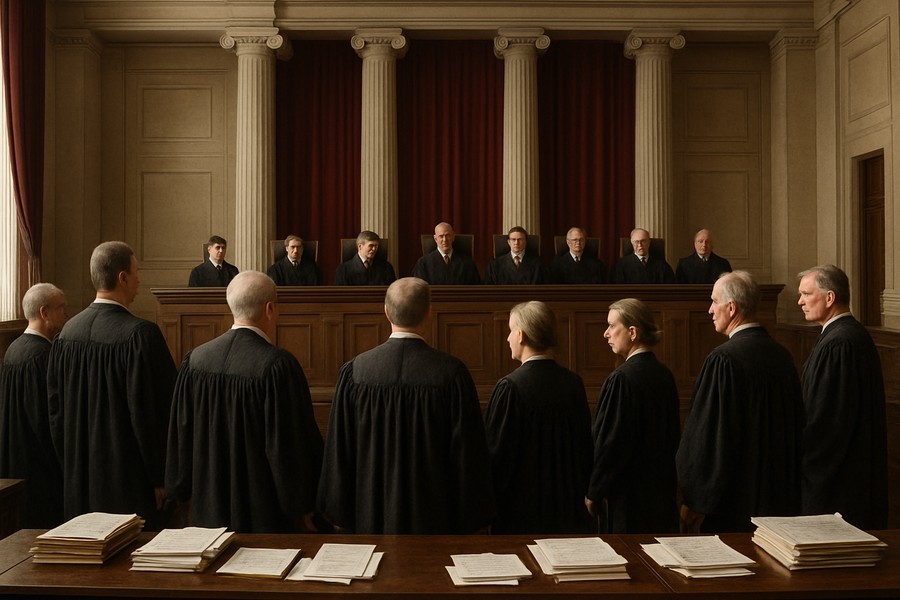
High Court's Handling of Cases Causes Discontent Among Federal Judges
Discontent is brewing amongst federal judges due to the Supreme Court's frequent overturning of their rulings related to the current administration, often without comprehensive explanation. This has led to a growing concern that such a practice could undermine the judicial system.
Concerned Voices
Various federal judges, appointed by both Democratic and Republican presidents, have expressed their frustration in private conversations. They have noticed a pattern where lower court judges are given complex cases involving the current administration. These judges conduct thorough research to reach their verdicts, only to have their decisions swiftly discarded by the Supreme Court, especially when their rulings are unfavorable to the administration. This rapid overturning of decisions was once a rarity but has seen a stark increase in recent years.
Impact on the Judiciary
These abrupt rejections by the Supreme Court not only leave the lower court judges with little guidance on how to proceed but also inadvertently validate the administration's criticism of them. Many of these judges feel that the Supreme Court's curt rebuttals create an impression of bias and poor judgment on their part.
There is also a growing concern for the safety of judges as threats of violence against them are on the rise, especially for those involved in high-profile cases. The protection service for judges has reported a steady increase in such threats over the past few years.
Call for Increased Transparency
Many of these judges believe that the Supreme Court should provide more detailed explanations for their rulings. They argue that this would not only offer them clearer guidelines but also help the public understand the court's decisions better. The lack of explanation, they argue, sends a confusing signal to the public and fuels the notion that the judiciary is attempting to undermine the presidency.
The 'Shadow Docket'
A term coined by a law professor refers to a section of the Supreme Court's docket where cases are expedited, bypassing the usual prolonged appeal process. These emergency cases are handled much faster than regular ones, often with no oral arguments and decisions made within days with minimal explanation. This shadow docket has grown in recent years, leading to criticism from legal experts about the lack of due process in making significant decisions.
A Need for Guidance
Judges have expressed the need for clear, reasoned guidance from the Supreme Court. The lack of explanation in many of the court's rulings makes it difficult for lower court judges to discern what is expected of them. This situation has resulted in a sense of being undermined by the Supreme Court's frequent interventions, leaving judges feeling like they're operating in a vacuum.
Role of the Chief Justice
As Chief Justice, the leader of the judiciary has the responsibility to represent the interests of the judiciary as a whole. Some judges believe that he should be more assertive in defending the lower courts, especially in the face of criticism about judicial overreach. A few have expressed that his occasional interventions are not sufficient, suggesting that he should do more to ensure a standard process is followed in handling emergency cases.
While it's understood that being overturned by the Supreme Court is part of a judge's job, many feel that the justices can disagree with a lower court's legal reasoning while also defending it as a good-faith attempt to address complex legal issues. There is a call for the Supreme Court to clarify that the lower court's opinions are not unreasonable, and the judges are not biased.
